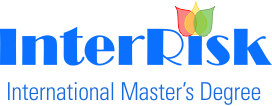You are here
InterRisk Master's Programme Year 2
In Year 2, the program provides students with advanced tools related to the assessment and management of health risks (biostatistics, epidemiology, social and economic analysis). The curriculum includes three transdisciplinary modules dealing with ecosystemic approaches. Advanced discipline-orientated courses are offered and based on real-life One Health examples.
Advanced Statistics and Advanced Epidemiology
The year begins with the module “Advanced Statistics”, which covers the main regression models (linear, logistic); the concept of interaction and confusion between explanatory variables; the analyses of clustered data (using mixed effect models); and multivariate statistics (principal component analysis, …). This module is closely related to the “Advanced Epidemiology” module, in which participants learn how to implement observational and intervention studies from a One Health perspective.
Analytical Methods
Students are trained to the main analytical methods, with specific attention given to confusion and interaction between variables, as well statistical power analysis. Sources of bias in epidemiological studies are also presented alongside issues of questionnaire design and administration. During this module, participants learn how to design, implement and communicate about outbreak investigations using an integrated approach in human, animal, environmental and ecosystem health.
Infection Dynamic Modelling and Disease Mapping
An introduction to the concepts and methods used for infection dynamic modeling is given. Geographic information systems (GIS) are also introduced to participants in a specific module, where they will learn to manipulate spatial epidemiological data and create disease maps. Students are introduced to disease cluster analysis with the use of dedicated spatial statistical softwares. The second year also covers methodologies for the evaluation and management of health risks, through three modules.
Risk Analysis
The Risk Analysis module focuses on the mechanisms of diseases emergence, and trains students to operational tools for qualitative and quantitative risk analysis from human, animal and environmental perspectives.
Surveillance
The Surveillance module introduces the concept of surveillance systems and covers the main tools available for surveillance in animal and human health. This module presents challenges posed by the evaluation of surveillance systems. The issue of monitoring antimicrobial resistances is also covered.
Prevention and Control
The Prevention and Control module discusses the new diagnostic, treatments and control methods in public health in South East Asia. This module also provides students the foundations for designing prevention and contingency plans for diseases at the animal-human-environment interface.
Social Approaches to Health Risk
In the second year curriculum, “Social Approaches in Health Risk” addresses the behavioural, social and cultural factors related to disease perception and health disparities in veterinary and human public health. Tools from behavioural and social sciences are presented to students in relation to the development, administration and evaluation of programs and policies in public health and health services.
Health Economics
The Health Economics module underlines the importance of economic analysis for decision-making in animal and public health. It will introduce various concepts and tools (partial budget, cost-effectiveness, cost-benefit) which can be used depending on the context and objectives. It also introduces the notion of risk and uncertainty in economic analysis.
Research Methodology
The module Research Methodology focuses on the critical appraisal of scientific papers, with practicums aiming at identifying strengths and weaknesses of scientific studies. Students will also learn the process of designing research projects from the conception of the research question to the implementation of the project and the considerations of research funding and costs. Students are taught how to write scientific reports and research papers. This module also provide students with the basic skills to design, perform and complete a piece of independent research, about a particular area of public health.













